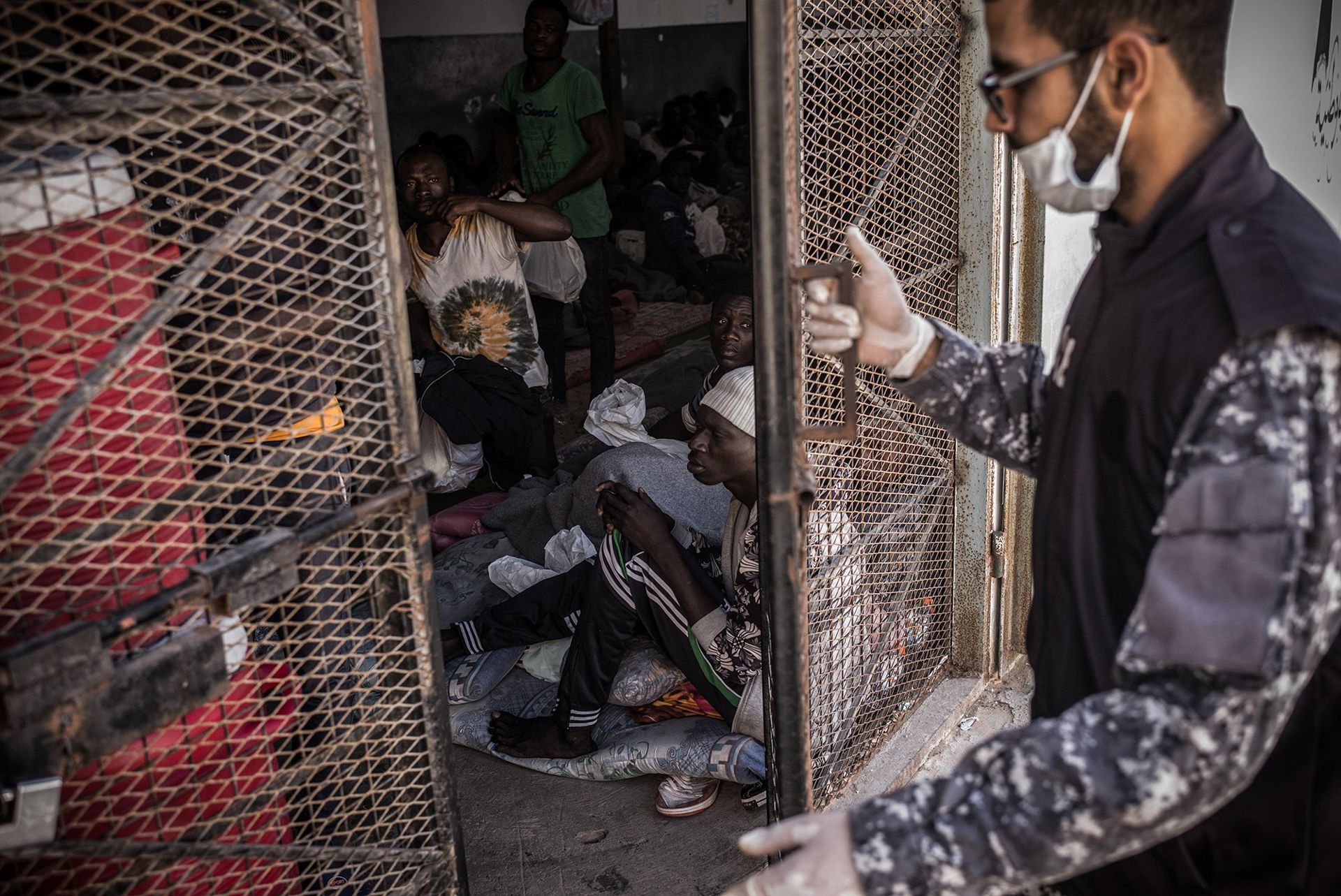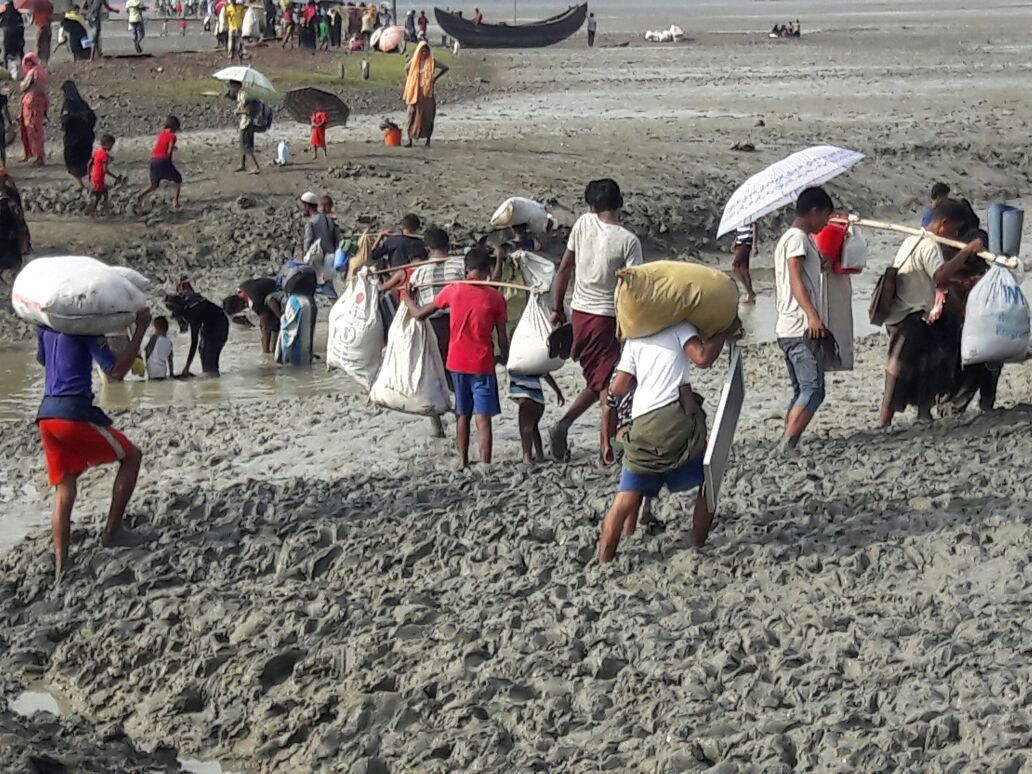Médecins Sans Frontières (MSF) is calling for an end to the arbitrary detention of refugees, asylum-seekers and migrants in Libya. For more than a year, MSF has been providing medical care to people held inside Tripoli detention centres in conditions that are neither humane nor dignified.
“Detainees are stripped of any human dignity, suffer ill treatment and lack access to medical care,” says Dr. Sibylle Sang, a medical advisor for Médecins Sans Frontières. “Every day we see how much unnecessary harm is being caused by detaining people in these conditions but there is only so much we can do to ease the suffering.”
Medical teams treat more than a thousand detainees every month for respiratory tract infections, acute watery diarrhoea, infestations of scabies and lice, and urinary tract infections. These diseases are directly caused or aggravated by detention conditions. Many detention centres are dangerously overcrowded with the amount of space per detainee so limited that people are unable to stretch out at night and there is little natural light or ventilation. Food shortages have led to adults suffering from acute malnutrition, with some patients needing urgent hospitalisation.
With no rule of law in Libya, the detention system is harmful and exploitative. There is a disturbing lack of oversight and regulation. Basic legal and procedural safeguards to prevent torture and ill-treatment are not respected. With no formal registration or proper record-keeping in place, once people are inside a detention centre there is no way to track what happens to them. This makes close monitoring and follow-up of patients extremely difficult. From one day to the next, people can be transferred between different detention centres or moved to undisclosed locations. Some patients simply disappear without a trace. The medical care Médecins Sans Frontières is able to provide in these circumstances is extremely limited.
Access to the detention centres is restricted when clashes take place between heavily armed militias in Tripoli. In addition, the management of the detention centres can change overnight and access to patients held inside has to be renegotiated. There are other detention centres that remain inaccessible for Médecins Sans Frontières due to ongoing violence and insecurity.
Increased funding alone is not the solution to alleviating the suffering of refugees and migrants being held in detention centres. A narrow focus on improving conditions of detention, while turning a blind eye to the complex reality of the current situation in Libya risks legitimising and perpetuating a system in which people are detained arbitrarily, without recourse to the law, and are exposed to harm and exploitation.
Médecins Sans Frontières calls for an end to the arbitrary detention of refugees, asylum-seekers and migrants in Libya
See more in the photo report released today: “Human Suffering: Inside Libya’s migrant detention centres” https://msf.exposure.co/human-suffering
MSF IN LIBYA
For the past year, Médecins Sans Frontières has been providing lifesaving and primary healthcare to refugees, asylum-seekers and migrants detained in Tripoli. If security conditions allow and if it is considered safe to do so, medical teams visit seven different detention centres nominally under the control of the Ministry of Interior on a weekly basis. Since activities started in June 2016, teams have visited a total of 16 detention centres. There are other detention centres that remain inaccessible for MSF teams due to ongoing violence and insecurity.
In Misrata, MSF is providing healthcare to refugees and migrants held in four detention centres. Each month medical teams provide about 100 medical consultations and makes around a dozen referrals of detainees in need of further medical assistance to secondary and tertiary healthcare facilities. MSF recently opened mobile clinics in Misrata and further south to provide medical and humanitarian assistance to migrants and refugees outside official detention centres.
MSF has worked in Libya since 2011 to support the health system, which has been impacted by the renewed war and the ensuing economic recession. To help public health structures which struggle with shortages of medicines and staff, MSF continues to respond with donations and other support. Responding to the needs of communities affected by the conflict, MSF is also providing paediatric, gynecological and obstetric care, as well as mental health services, in Benghazi



